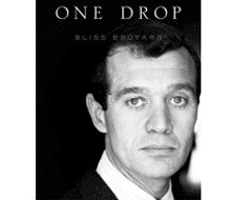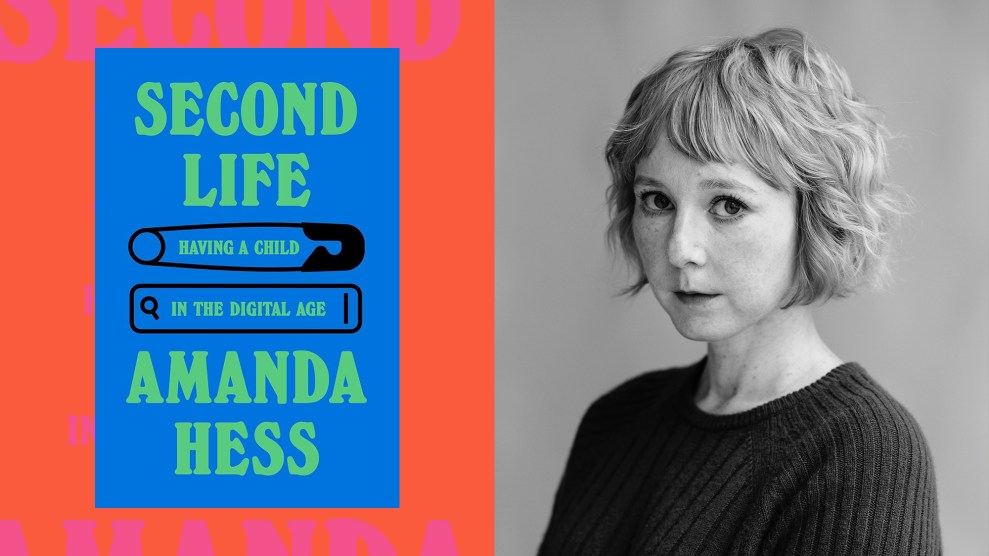
If you haven’t read Bliss Broyard’s One Drop: My Father’s Hidden Life-A Story of Race and Family Secrets, you must. No matter how well you thought you understood, this book makes you realize just how relentlessly integral race is to American life and just how crucial it is to move beyond it. A complex book on a complex issue, it’s hard to know where to begin (good reviews here, here and here).
Here’s the easy part: One Drop is about having a semi-famous father who gave you all the insulated, WASPy pampering any white girl could want but who turns out, on his deathbed, to have in fact been black, then backtracking to figure out why and how he did so. And where that leaves you in a nation where boxes must be checked and sides must be taken. Only in America could a strained conversation in your dying father’s sickroom change your race. This just in: you’re black.
Pere Broyard, Anatole, was a New Orleans Creole, as it turned out, who helped create a post-war, bohemian-intellectual Manhattan where he and his friends “didn’t know where books stopped and they began.” But the world did. The only way for the cerebral, wavy-haired Negro to claim a place in that rarified atmosphere, seduce numberless white girls, or even get a decent job, was to stop being black. The price of doing so for two generations left Broyard a twisted soul, self-eliminated from family and culture, adrift in a world which existed mostly in the minds of the trendy Communist sympathizers and slumming trust-funders who fed on each other until it was time to marry and move to Connecticut. “Our tribe of four made us seem alternately special and forsaken,” Bliss writes, “the last survivors of a dying colony or the founding members of an exclusive club.”She and her brother had almost no interaction with either side of the family, so deeply ‘incognegro‘was Anatole. So were they black now? If they’re not, is it because it’s too late or because it’s too easy?
It was often gruesome watching Broyard try to figure out what to do with whatever blackness she might possess; someone should have persuaded her to resist exulting in her belief that she can dance “like a black girl.” As she must be to deserve cashing in on her family’s hideous conundrum, however, she’s painfully honest, as when forcing herself to relive instances of her own racism, post-revelation. But what keeps you slogging through the tedium of her ‘am I black?’ essentializations is her seamless vivification of racial history through a family that lived in a special world at a special time and faced a very special temptation. Few writers have the tenacious luck to unearth ancestors who played such we-were-there roles in history without being in the least famous (the Broyards’ slavery and Civil War histories take on a surreality which screams screenplay). You can’t put this book down – it works best as a mystery – until she’s tenaciously, followed all those foolish, foolish breadcrumbs (like looking for some black Broyards in slum New Orleans who were likely low-lifes). Black people will often dislike her for this book; many will have to fight their own spite throughout, sputtering with remembrances of all the tragic-by-choice exotic multi-breeds they’ve known who expect nappy headed ho’s to sympathize with their inability to grow afros. More than hair follicles block that connection. Bliss figured that out eventually, one exhaustively researched book later, one massive act of penance for ancestors she can never understand. There’s no getting to the bottom of race or becoming black by revelation. ‘Race’ is how the world reacts to you, not your genetic code. When asked, and in America you will be, Bliss answers: “My father was part black but I was raised white. “She’s described race perfectly: she told you everything and nothing.
Now, the hard part: why are white people suddenly so interested in race and how should blacks feel about them bumrushing the racial microphone?
Broyard’s joins a growing canon of books about whites finally interrogating their family’s role in America’s original sin. Edward Ball’s Slaves in the Family, and Cynthia Carr’s Our Town: A Heartland Lynching, a Haunted Town, and the Hidden History of White America are among the best. Too damnably good, like Broyard’s, to dwell on their cashing in on racism on both the front and back ends.
In the first, a descendant of South Carolina’s slave-owning, diary- and genealogy-obsessed aristocracy set out to unearth the black Balls so scrupulously obscured in his family’s voluminous records, a journey which he doggedly followed across America and to Africa. The second (which I reviewed) is by the granddaughter of a man who may have joined in an infamous 1930 lynching in Marion, Indiana. Just as Ball grew to adulthood before wondering why he knew nothing about the humans his family owned, Carr did so without knowing she’d grown up in a Klan stronghold where her kindly old neighbors may well have participated in an unfathomably evil event they later airbrushed from the town’s memory.
Clutching a gruesome trophy photo typical of lynchings , Carr, like Ball with his family’s slave registries in hand, undertakes a journey of racial discovery that is by turns, both heroic and unavoidably self-aggrandizing.
White interest in racial history proceeds as did the history itself: slavery (Ball), then the domestic terror campaign that kept free blacks in their place (Carr). Now, with One Drop, we enter the phase of whites owning up to the rapes and miscegenations that tell the truth on America’s hypocrisy but which also implicate everyone. No group’s hands are clean but it is mainly blacks, due to their all but marginal absence from the historical record, who are prevented from sallying forth equally well armed, documents in hand, to turn over history’s rocks. Screwed again.
Still, these works do what America never will; participate in all the truth and reconciliation we’re ever going to have—piecemeal, caveated, hazy, statute of limitations-expired but more than blacks knew before. More than whites could bear to admit to before. Leave it to white narcissism to do for us what the urgings of conscience never will: put white perpetrators center stage. Now that it’s safe. Given that America won’t hold its breath until a black person goes digging for the ancestor who narc’d on Denmark Vesey, maybe blacks should cut whites some slack on their long overdue introspection. There’s no denying that blacks desperately want to know what the hell happened and how and only whites can tell us that.
Lucky bastards.
















